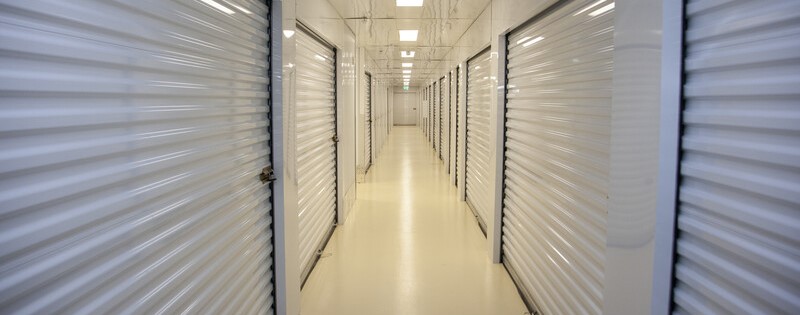Public Storage Chair Ron Havner received an award as a REIT Visionary at NYU SPS Schack Institute of Real Estate’s annual REIT Symposium, held in NYC this week.
Havner has spent the past 25 years building Public Storage—the company’s first self-storage outlet was called Private Storage—into a leading self-storage sector REIT.
Public Storage (PSA), based in Glendale, CA, develops, owns and operates more than 2,800 self-storage facilities in the US, encompassing more than 200M SF in 38 states. The REIT also owns 35% of Shurgard Self-Storage SA, a European company it is preparing to spin off. PSA has a market cap estimated at more than $54B.
Last year, PSA acquired more than 44 self-storage facilities—primarily in one- to two-property deals—encompassing more than $500M in purchases, according to a regulatory filing. The REIT has been executing an acquisitions strategy of growing economies of scale from areas including third-party property management.
Before the award presentation, Havner, in a conversation with Adam Emmerich, a partner at Wachtel, Lipton, Rosen & Katz, described the development of the self-storage sector, which was originally highly fragmented and dominated by mom-and-pop shops.
“It doesn’t take a rocket scientist to build a self-storage facility. They’re easy to build and easy to operate—although it’s much harder to operate more than 2,000 of them,” Havner said.
“Our margins are 82% and maybe a mom-and-pop is 62%. Even at 62% it’s a great business,” he said. “There are no tenant improvements. You sweep up the floor and change the light bulbs. It just pukes cash.”
When Public Service first began accumulating self-storage properties two decades ago, the company had plans to adapt those facilities to other uses that were thought to be more profitable, including offices, apartments and parking garages.
“It turns out the cash flow from self-storage has outpaced all of those alternative uses, even apartments,” Havner said. “Self-storage and manufactured housing are the two best food groups in real estate.”
Havner said the self-storage sector is “ripe” for technology. Technical initiatives PSA introduced during the pandemic have slashed nearly a quarter of the company’s operating expenses, he said.
“We pioneered a lease online concept called e-rental. Now, 50% of our business is e-rental,” Havner said. “You don’t have to talk to anyone, you’re given an access code.”
“You go online, give us a credit card number, show up at your unit, open the door and the lease agreement, insurance agreement and lock are waiting for you,” he explained.
PSA also introduced a Public Service app that lets you access the property by holding up a smartphone.
When Havner stepped down from the dais with his award, we asked him how the self-storage sector will fare in the developing economic slowdown. Can he reassure investors that self-storage is recession-proof?
“I don’t think self-storage is recession-proof, I think it’s recession-resistant,” Havner told Globe St.
During the Great Recession that followed the GFC, the sector did not see a significant drop in the number of people leasing storage units, he said.
“During the GFC, we saw a reduction in demand of 2% to 3%. Look at the operator yields for the Great Recession and you’ll see that it had a di minimus impact on their profit,” he said.
If we have a recession this year, Havner told us he expects moving activity to slow down but does not expect a lot of people to give up their storage space—and many may increase it.
Havner suggested people may opt for smaller apartment units as they tighten budgets, ending up requiring more storage space.
“They may downsize their apartments and put more stuff in the storage units. If you go to a two-bedroom apartment and you need three [bedrooms], people typically put more stuff in storage,” he said.
“Self-storage is a space substitute. If you think of the decision, it’s about I need space,” Havner said. “It’s about, I need to put my stuff somewhere. I need to rotate my clothes, to store my winter clothes, then my summer clothes.”
Public Storage was the largest player in the self-storage sector, with an estimated 9% market share, in February when it made an unsolicited $11B takeover bid for Life Storage (LSI).
LSI rejected the bid and instead agreed to be acquired this month by Extra Space Storage for $12.4B. The deal creates a new industry leader with an estimated $47B in assets, including more than 3,500 self-storage facilities encompassing more than 264M SF.
Source: GlobeSt.

